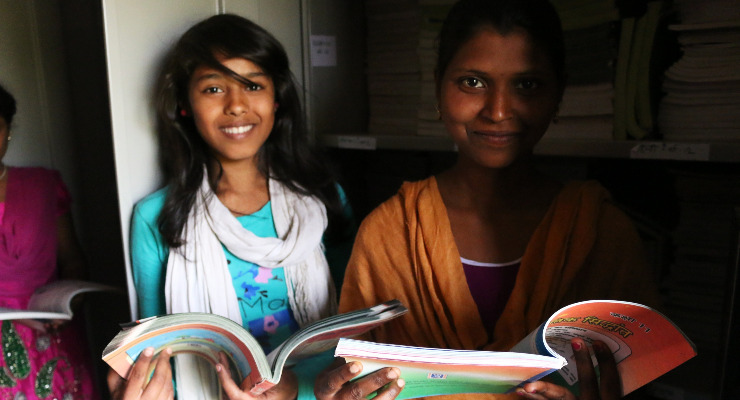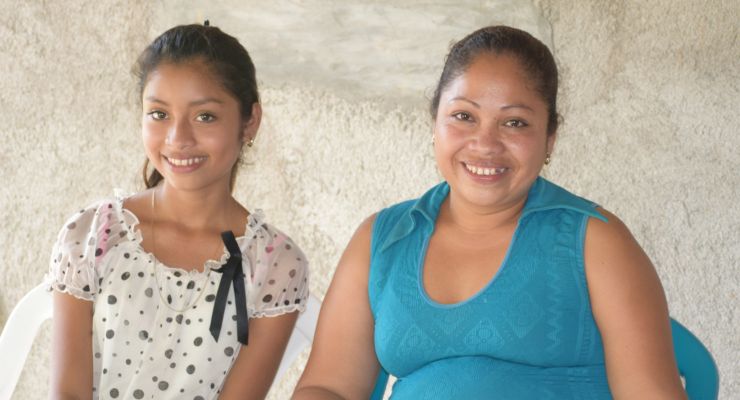GIVE CHILDREN THE ESSENTIALS IN LIFE
By giving children the essentials in life – clean water, enough food, healthcare and an education – you’ll make a real difference to children living in poverty in some of the world’s hardest places.
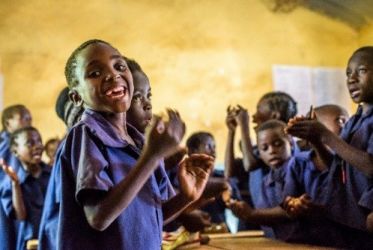 When you donate £2 a week to Essentials, you’ll join thousands of other supporters to change the lives of vulnerable children and bring real hope to those who need it most. You’ll get updates about the children and communities you’re helping, so you can see the lasting difference you’re making in children’s lives.
When you donate £2 a week to Essentials, you’ll join thousands of other supporters to change the lives of vulnerable children and bring real hope to those who need it most. You’ll get updates about the children and communities you’re helping, so you can see the lasting difference you’re making in children’s lives.
We promise that the donation you make to World Vision today will be used to help give children hope for the future.
HOW ESSENTIALS WORKS
For £2 a week, you will give children the essentials they need to thrive.
Essentials changes lives. Your donations will bring real hope to millions of vulnerable children in the world’s hardest places. This includes our long-term development work - building sustainable communities, in partnership with the people who live there.
Although £2 a week may not seem much – maybe what you pay for a cup of coffee – it’ll make a huge difference to a child living poverty. For example, over six months, your gift could buy six fruit trees so four families have nutritious food to eat. Over 12 months, you could immunise five babies against diphtheria, whooping cough, measles, polio, tetanus and tuberculosis – the six main killer diseases in childhood.
Looking further ahead, over 24 months, your gift could pay for all the books for children in four classes, helping them to get the education they need to have a brighter future.
Please donate online today. Thank you.
ESSENTIALS STORIES
Education - India
“I just love to look through the books...it's like a closet filled with gifts!"
Your support has helped to provide 13 schools, including Anjali’s (pictured, right), with libraries. You’re also giving children like Anjali coaching classes, that help them catch up with school and get support with their homework.
Anjali, 15 years old, has just finished reading a book on atoms and molecules. She loves to read by the mustard fields. Now, she walks by the narrow lanes of Bhojpur to return the book at her school. The school's library consists of two cupboards stacked with academic books on various subjects.
"Me and my friends are able to learn so much better now. We just have to enter our names in the register with our roll numbers, then take whichever book we need.”
"The coaching classes, along with the library, has made school more fun. I have done better in my exams. We get to see our friends more. I just feel more confident about things in general." With your support, Anjali is all geared up to start Grade 10 this year (equivalent of GCSEs in the UK).
Thank you for helping Anjuli thrive at school by providing both her and her school with a library and coaching classes.
Water - Kenya
Back home in Sudan, Muhammad, 54, was a market gardener, just like his father and grandfather. Then war erupted and his life was turned upside down.
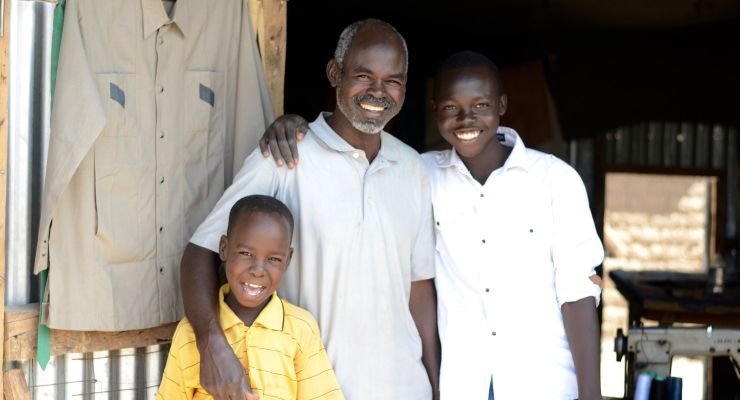
Muhammad explained, “There were attacks. We didn’t know why. People were killed, they burned the houses and they raped the girls. They killed my brothers and sisters.”
He grabbed his family and ran, taking just one thing – seeds from his farm. They moved to the capital, Juba, but after 2 years, violence flared up again. They moved to a refugee camp in Kenya.
In the camp, Muhammad finally planted his seeds. He explained, “On a deserted piece of land, I cut down the trees and dug out all the roots. My eldest sons helped. Then I hand-dug a well. I took those seeds, the ones I brought from Darfur, and they grew,” Muhammad says.
But the drought in East Africa meant Muhammad’s hand-dug well ran dry. His crops soon withered.
Since then, your support has helped to dig a borehole in Muhammad’s camp, tapping into a deep underground water source. It’s helped Muhammad grow pumpkins, sweetcorn and cucumbers. He’s also joined our gardening project, sharing 7 acres of land with 200 people, to grow urgently-needed nutritious food.
This garden is a green oasis in a drought-stricken corner of northern Kenya. For Muhammad and his family, it’s a place of hope.
Thank you for providing Muhammad and his family a borehole, enabling them to drink clean water and grow nutritious food.
Health - Honduras
“With World Vision, I’m helping to reduce the number of children who are born with disabilities.”
“My name is Katherine, I’m 13 and I’m in the ninth grade at school. I live with my mum and dad. I volunteer with World Vision, in the Pre-Natal Program, along with my mum.
“In my community, teenage pregnancies are very common. It’s painful for me to know that my dearest friend had an unwanted pregnancy because she did not know what to do or have the right information.
“For girls my age, our bodies aren’t physically ready to have children. So, teenage mothers have a much higher risk of problems in child birth and often live with life-long problems afterwards, like fistula. It’s also much riskier for the baby and many are born with disabilities as a result.
“Girls who fall pregnant too early usually drop out of school and are much more likely to get stuck in extreme poverty. So, often babies of teen mums become malnourished. 55% of people in my community are already malnourished.
“With World Vision, I’m helping to teach other teenagers about sex education and maternal health, to try and help reduce the number of children who are born with disabilities.
“I help to do this by giving talks at the school and churches. We’re also teaching new mums about nutrition and how to keep their children healthy.”
Thank you for supporting the Pre-Natal Program in Katherine’s community and helping to keep teenage girls safe.
Water - Zambia
“We used to collect dirty water from the well in the swamp”
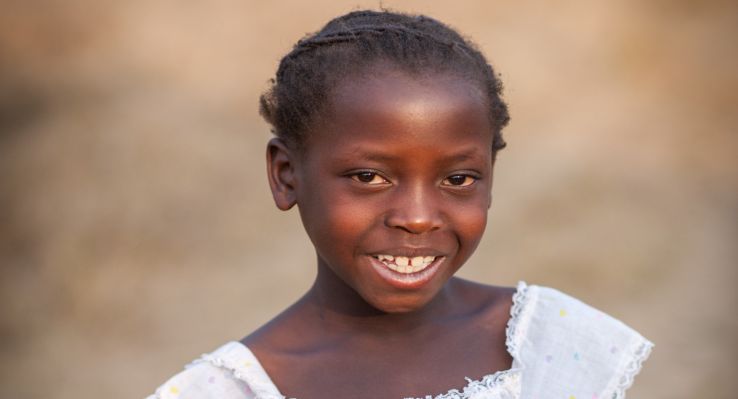
Dorcas, 9, is at her community’s borehole, drilled by World Vision, thanks to your support.
Before the borehole, Dorcus used to miss weeks of school when she got sick from drinking dirty water. It was difficult to protect the water source and it could become easily contaminated, leaving them with no other water.
On one occasion, a dog fell in and died. Dorcus’ community leader, Bazaar, explained, “We couldn’t see the dog…it fell in deep and got coiled up in some roots. We looked with a stick to unhook it. When it came up, it was white, like it had been skinned. It was a terrible time.”
Since the borehole, Dorcas explained, “This water is clean. I’ve noticed that whenever I drink this water, I don’t get sick anymore. I no longer gets diarrhoea and I can go to school all the time.” Dorcus has gone from being ranked #9 in her class to being ranked #5. But, she says, she’s aiming for #1.
Thank you for helping to provide Dorcus’ community with clean water and allow her to keep up at school.
